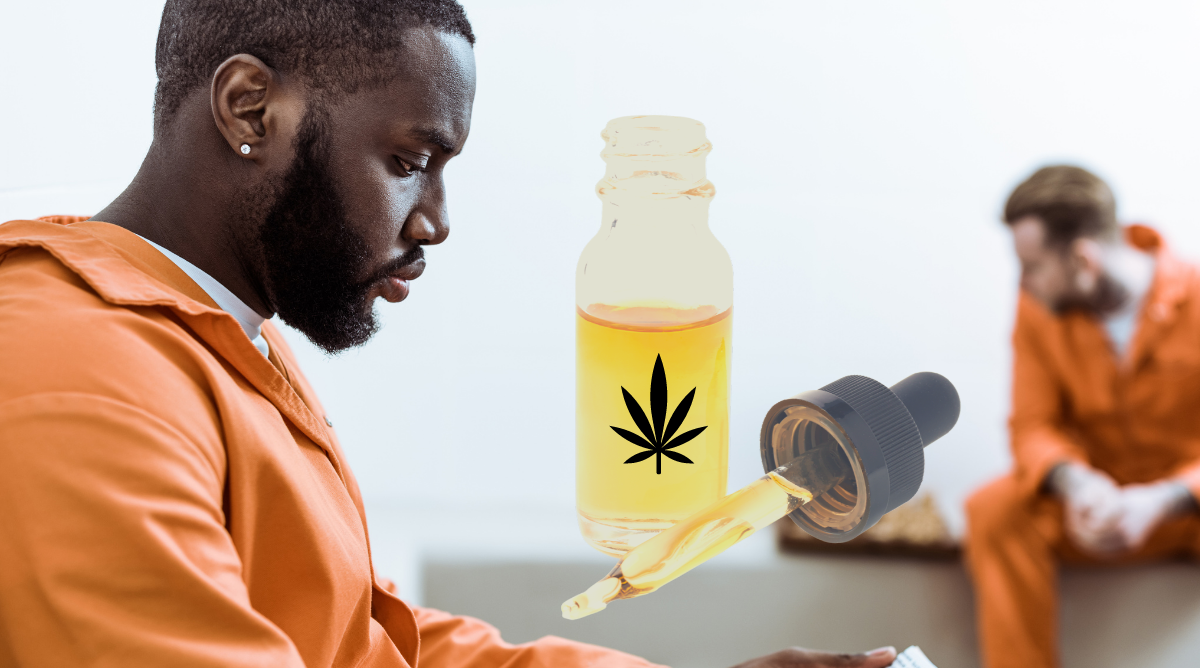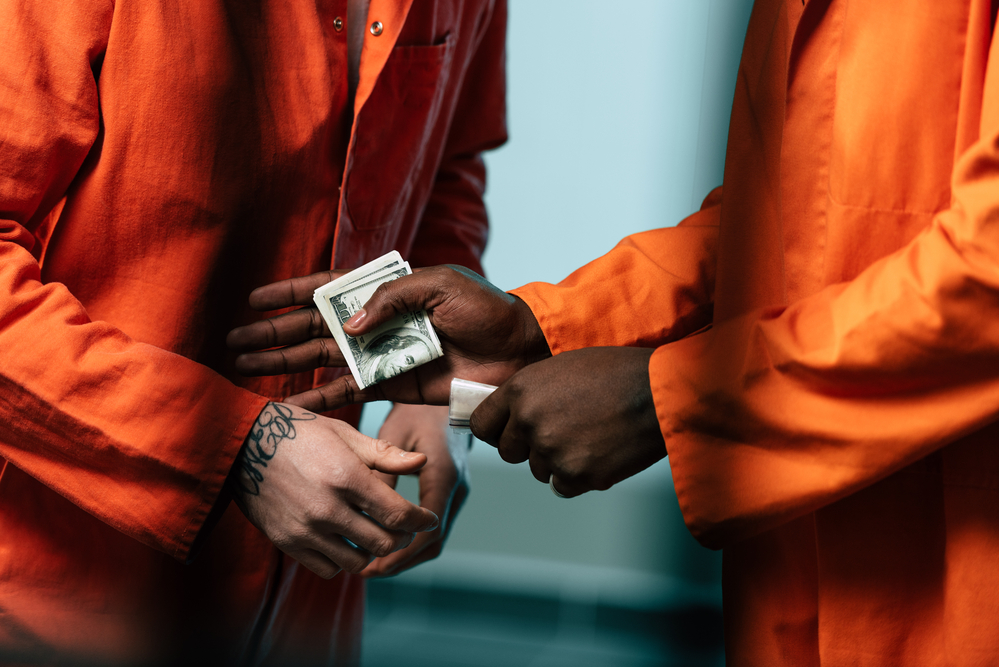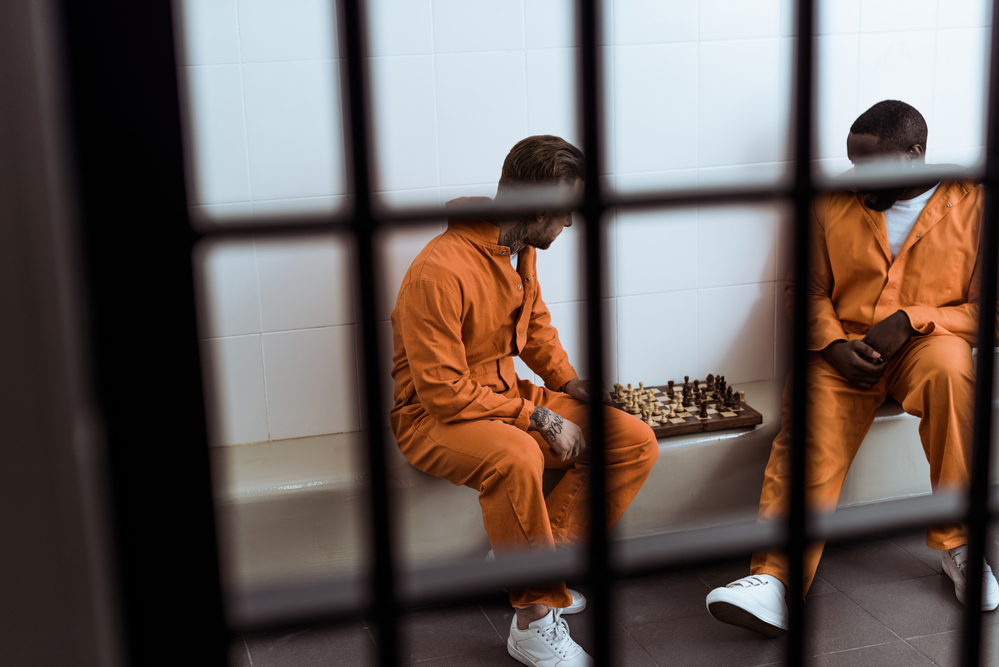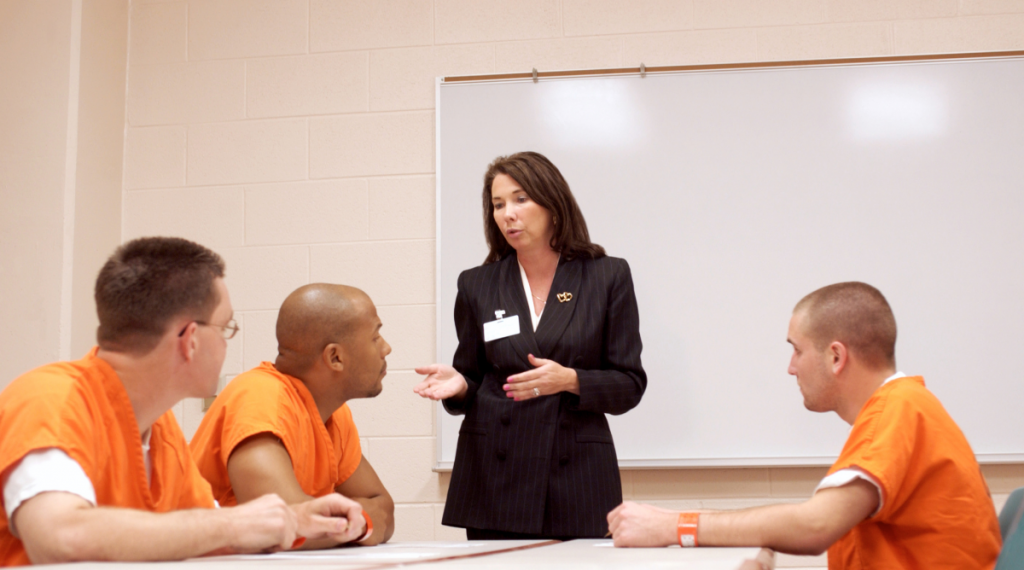
Regulators in the United Kingdom are proposing a revolutionary idea. They are considering the plausibility of providing cannabis to inmates in Prison. Afron Jones, the North Wales Police and Crime Commissioner called for a study, suggesting it may improve safety. Giving cannabis to inmates may reduce overdose deaths and violence among incarcerated populations.
In an interview with The Guardian, Commissioner Afron Jones stated:
“If they’re on opioids, why can’t they be prescribed cannabis? At the end of the day, opioids are a damn sight more dangerous than cannabis. It would be an improvement on the illegal spice smuggled in by corrupt prison officers too.”
In the United Kingdom, recreational cannabis is not legalized. However, medical cannabis for a restricted number of conditions is legalized in Great Britain. Getting a prescription for medical cannabis through the National Health Service (NHS) for cannabis oil is complicated.
Providing legalized medical cannabis to inmates would be precedent-setting. Not just in the United Kingdom, but around the world. Could we see a day in the future when medical cannabis is provided to individuals with chronic pain or mental health disorders in the American penal system?

A study from the Treatment Advocacy Center estimated that 20% of jailed inmates and 15% of inmates in state prisons had a severe mental illness. That is 10x the number (in 2014) of patients held for treatment or long-term care in state hospitals. Mental health providers have suggested that the cutbacks in psychological services and free programs have created a more significant problem.
Individuals who have untreated mental illness can struggle in many different areas. It may be hard for them to sustain positive, long-term, and supportive relationships. Mental illnesses can make finding (and keeping) a job harder. And the out of pocket (and often uninsured) costs for mental health treatments are too expensive.
All these factors put increased pressure on people who turn to crime. Poverty is the strongest motivator for criminal activity. However, some people with anger and aggressive tendencies can find their talents appreciated in criminal circles. They can be successful and rewarded for their criminal offenses until the authorities catch them.
In countries like Canada with Universal Healthcare, psychotherapy services are not included or ‘free’ for the average citizen. However, in severe mental crises or illnesses, there are still institutions available to house patients. At no charge, while getting them the help, they need to rehabilitate.
In 2019, there were 12,472 registered mental health treatment facilities in America. Of the small number of facilities, 9,766 offered less than 24-hour outpatient treatments. And 1,892 facilities were up to 24 hours hold and support facilities.

People who are incarcerated may have been self-medicating with cannabis before it was legalized. To help address chronic pain and disease symptoms. Or they may have been prescribed opioid medications for long-term use. Inmates can go into severe withdrawal after being incarcerated.
Drug-related mortality in prison is a growing problem globally but increasing rapidly in the United States. There is a lot of evidence to support that many inmates enter into the penal system with drug addiction. Through illegal transport (often involving penitentiary law enforcement officers), they may continue to access drugs while they serve time.
Even in the most strict and controlled environment as a state prison, controlled substances are still available. A large number of former felons die from a drug overdose after their release from federal facilities. This is according to a report from the World Health Organization (WHO).
According to data from drugabuse.org, many of the prison population in the United States are serving time for drug-related offenses. An estimated 65% of the American prison population may have a substance abuse disorder (SUD).
Another problem is a high rate of overdose fatalities from citizens released from prison. While serving time, with minimal access to drugs, addicts lose their tolerance to substances like heroin or opioids. There are severe consequences in federal prison. And some decide to use the time to detox from chemical addictions.
When they are released, however, they may not have cured the psychological dependence on heavy drugs. And because they have a lowered tolerance, their risk of overdose is high. They may take a dose they used to have before they were incarcerated, proving to be lethal to a body with low tolerance levels.
The introduction of cannabis as a step-down therapy and alternative to heavy drugs could be lifesaving. Not only would medical cannabis help alleviate debilitating symptoms and withdrawal, but it could help inmates rely on a less hazardous drug.
Consequently, if cannabis has been useful for them, they may qualify for a medical card and continue use. That could prevent a return to hard drugs upon release. It may also reduce the risk of another drug-related legal offense.

When you talk about mental health and crime, it is a chicken and the egg analogy. Do untreated mental illnesses contribute to increased crime rates? Or do criminal actions and incarceration time cause guilt, anxiety, and depression? Many studies say it is multilateral cause and effect.
What is known is that people incarcerated in the United States have a higher prevalence of mental health problems. There are social and economic factors that contribute to an increased risk of criminal activity, including:
The same lifestyle and economic factors that contribute to a life of crime also compound anxiety, depression, or other mental health conditions. Some studies suggest that schizophrenia and bipolar affective disorders can be underdiagnosed. People who commit crimes may not have had the money for therapy or for prescription medications to help manage their symptoms.
You don’t have to watch “Orange Is the New Black” to know how difficult and dangerous life behind bars can be. And unresolved or untreated mental health problems only compound the difficulty inmates face. Placing them at a higher risk of crimes while incarcerated, including theft, drug abuse, and violence.
Shutter Island. It gives us a horrifying look at the worst aspects of mental healthcare in American history. Reports of systemic patient abuse and mistreatment and inhumane therapeutics eventually led to long-term care institutions’ demise.
One study highlighted the death of institutionalized care for mental health in America. The University of Pennsylvania published “Improving Long-Term Psychiatric Care: Bring Back the Asylum.” Because of the dark history of some state- and privately-run asylums, the idea seems startling until you consider that state prisons have become the catch-all, with a high percentage of inmates with untreated mental illnesses.
The purpose of both the penal system and the antiquated mental health asylum is the same. Address the mental health needs therapeutically, to rehabilitate citizens, and return them to a productive life. But when mental health patients enter into the penal system, the support available for treatment falls short—particularly the availability of one-on-one psychotherapy in conjunction with prescription medications. About half of the inmates are provided with the medicines they need while incarcerated.
The same problem is present in many developed nations. The idea that mental health long-term care facilities were inhumane created a gap in support and rehabilitation. Consequently, the United States leads the world in the number of incarcerated prisoners. The most recent statistic reports an incarceration rate of 716 per 100,000 people per capita.

What would happen if cannabis was federally legalized in the United States? Cannabis would still be a controlled substance, but use would no longer result in charges. Many laws would have to change to facilitate that shift in enforcement. But would it also apply to inmates in the American penal system?
In the continually evolving cannabis legal landscape, anything is possible. Given the restrictions of incarceration, access to recreational marijuana would be unlikely. But doctor-supervised medical cannabis could be provided for inmates with qualifying health conditions.
If the United Kingdom’s recommendation becomes law, there will be data for U.S. federal agencies to evaluate. Would medical cannabis reduce violence, suicide, and overdose deaths in prisons? Maybe. It could also help minimize prescription medications (with a higher potential for abuse) for inmates.
Another potential benefit would be lowering the cost of medical treatment for inmates. Cannabis can be more useful for pain relief, muscle spasms, diabetic neuropathy, and other conditions. Fiscally, it could save millions of dollars per year for the U.S. penal system in health administration costs. And lower the instances of heavy drug trafficking, use, and overdose in American prisons.
Featured Image: Canva
No Information on MarijuanaDoctors.Com should be used to diagnose, treat, prevent or cure any disease or condition. You can view our Full Disclaimer here.